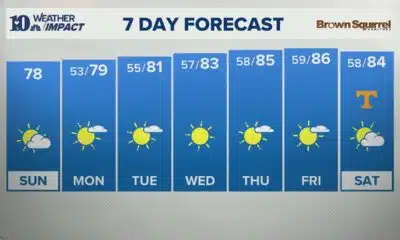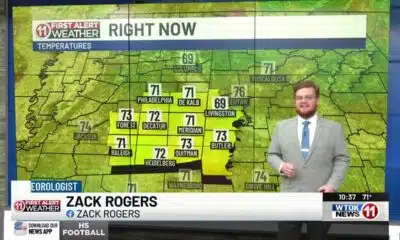(The Center Square) – Tennessee has two funding sources for education, one of which is growing while the other is seeing a drop in revenues.
The growth of sports betting and the decline in Tennessee Lottery revenues became a hot topic of discussion for lawmakers during a special session of the General Assembly in January.
The Tennessee Lottery funds the state’s largest higher education scholarship, the Hope Scholarship. It also funds lesser-known initiatives including after-school programs and an energy-efficient school program.
Sports wagering tax revenues are split with 80% going to education, 15% to local communities and 5% to mental health programs.
Gov. Bill Lee proposed diverting some of the sports betting revenue into a school construction fund that was part of a package he presented during a special session in January.
“In the end because folks started to look closely at the numbers and they realized that the lottery account was really beginning to depend on the sports betting proceeds for the first time as a backstop to fund the scholarship obligations (and) that it was possible that the lottery funds alone were not going fund the sports betting proceeds,” Mandy Spears, executive vice president of the Sycamore Institute told The Center Square in an interview.
In the end, lawmakers amended Lee’s proposal.
“It said if the lottery fund falls short of covering a scholarship cost, then those sports betting proceeds will cover that shortfall and then if there’s anything left over the rest will go to the school construction fund,” Spears said.
And lottery revenues are down this year.
“Tennessee Education Lottery gross revenues for the current fiscal year are approximately 10.1% lower than at the same time during the last fiscal year,” Kym Gerlock, director of communications and social responsibility for the Tennessee Lottery, told The Center Square. “The Lottery is projecting an increase in sales and return to education for FY26.”
Gerlock said a variety of factors affected the revenue decline, and sports betting was not the only one. Fewer large multi-state jackpots in the past year are also a reason.
The lottery and sports betting share some of the same customers which is partially behind the growth of sports betting and the decline in lottery sales, according to Spears.
“So what is happening is sports betting is siphoning off some of those customers from the lottery and another difference is that people can bet on sports from their phones and up until this year you had to go to a retailer to play the lottery,” Spears said. “So it’s a lot easier to bet on a sports team than to play the lottery.”
Lottery officials launched a new app called Anytime Powerball in January. The launch is a test into the online sales market, Gerlock said. It’s only available on Android phones.
A closer look at the numbers shows that the Tennessee Lottery, established 20 years ago, still brings in more revenues for education than sports betting. The fiscal year 2024 audit shows $1.89 billion in ticket sales, including instant games and draw-style games, with $519 million going to education programs, according to the fiscal year 2024 audit.
Sports betting brought in $7.6 million in privilege taxes to the Tennessee Promise fund in fiscal year 2023, according to an audit assessing the program from Jan. 1, 2022, through June 30, 2023. The privilege tax is assessed at a “rate of 1.85% of gross handle, which is calculated (in basic terms) as total wagers minus adjustments for voided or cancelled wagers and the federal excise tax,” according to the Tennessee Sports Wagering Advisory Council.
The sports betting revenue is growing. The handle, which is the amount of money wagered, was $463.5 million in April. It is a drop from the past several months, when the handle was often more than $500,000.
Projections show that sports betting will continue to have a modest, steady growth rate and the lottery will stay flat, Spears said.
“The most recent projections show that the lottery proceeds might not cover all the scholarship costs alone in a single year,” Spears said. “Now the lottery for education account maintains a very healthy reserve balance in case that happens so there is a backstop there. But that is within the realm of possibility in any given year that there can can be more scholarship costs than there are lottery proceeds to cover those costs.”










































